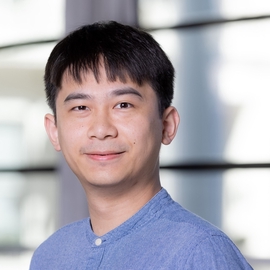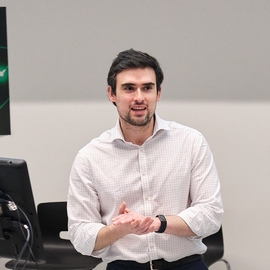Abstract
This paper presents a distributionally robust data-driven model predictive control (MPC) framework for discrete-time linear systems with additive disturbances, while assuming the distribution is only partially known through samples. The corresponding optimal control problem considers a distributionally robust (DR) objective over an ambiguity set of estimated disturbance expectations. A statistical learning bound is provided to validate the ambiguity set. For this control problem, polytopic hard input constraints and state chance constraints are considered. State chance constraints are formulated into linear deterministic constraints through solving a DR optimization problem with Wasserstein ambiguity set. The resulting optimal control problem can be equivalently solved by a linear program. We prove recursive feasibility and provide an average asymptotic cost bound for the corresponding MPC framework. The method is compared, demonstrated and analysed on a mass spring control example.
Publication
2023 American Control Conference (ACC)

Data-Driven Distributionally Robust Control
Zhengang is a PhD candidate at Imperial College London. His PhD research is about data-driven distributionally robust model predictive control.Prior to his PhD research, he holds a Diplom-Ingenieur in Mechatronics from Technische Universität Dresden. His research interests include data-driven optimal control, scientific machine learning, and distributionally robust optimisation.

Principal Investigator of OptiML
Antonio del Rio Chanona is the head of the Optimisation and Machine Learning for Process Systems Engineering group based in thee Department of Chemical Engineering, as well as the Centre for Process Systems Engineering at Imperial College London. His work is at the forefront of integrating advanced computer algorithms from optimization, machine learning, and reinforcement learning into engineering systems, with a particular focus on bioprocess control, optimization, and scale-up. Dr. del Rio Chanona earned his PhD from the Department of Chemical Engineering and Biotechnology at the University of Cambridge, where his outstanding research earned him the prestigious Danckwerts-Pergamon award for the best PhD dissertation of 2017. He completed his undergraduate studies at the National Autonomous University of Mexico (UNAM), which laid the foundation for his expertise in engineering.